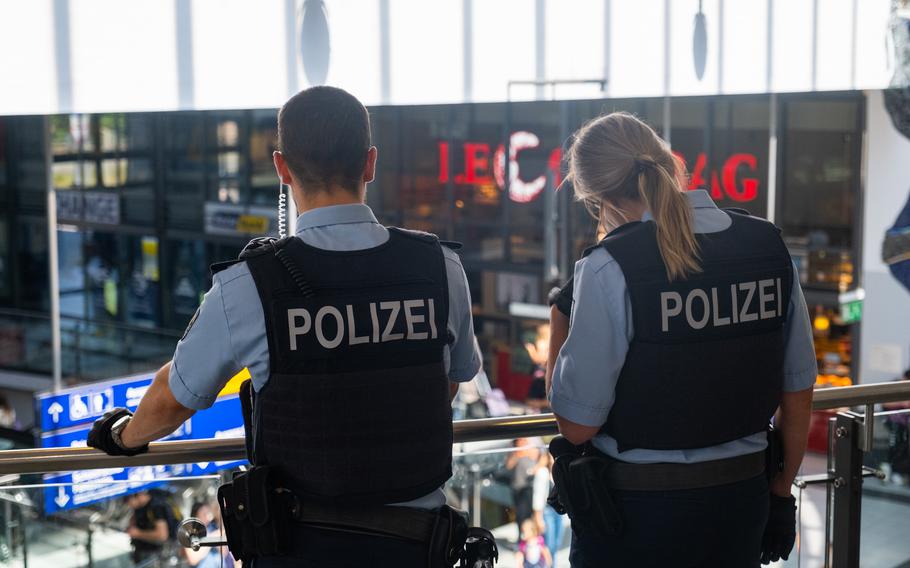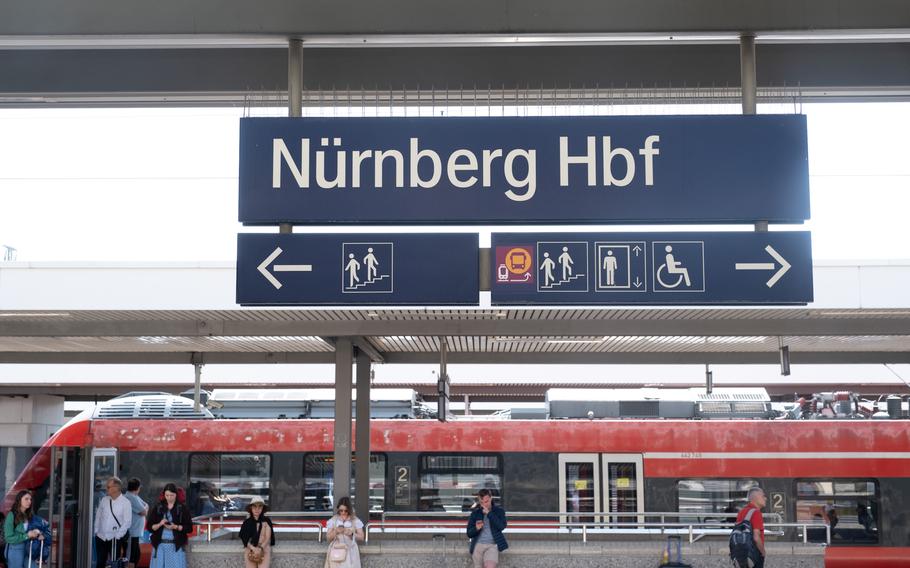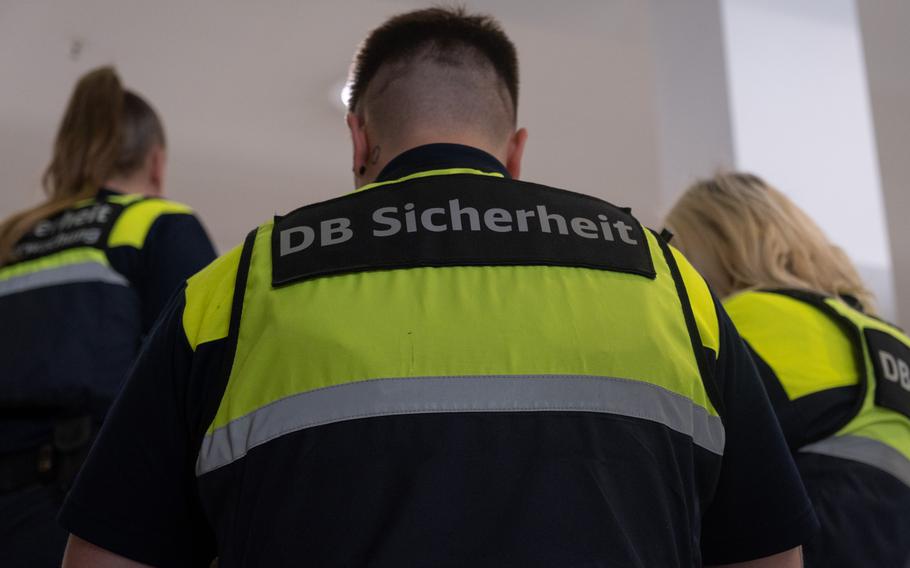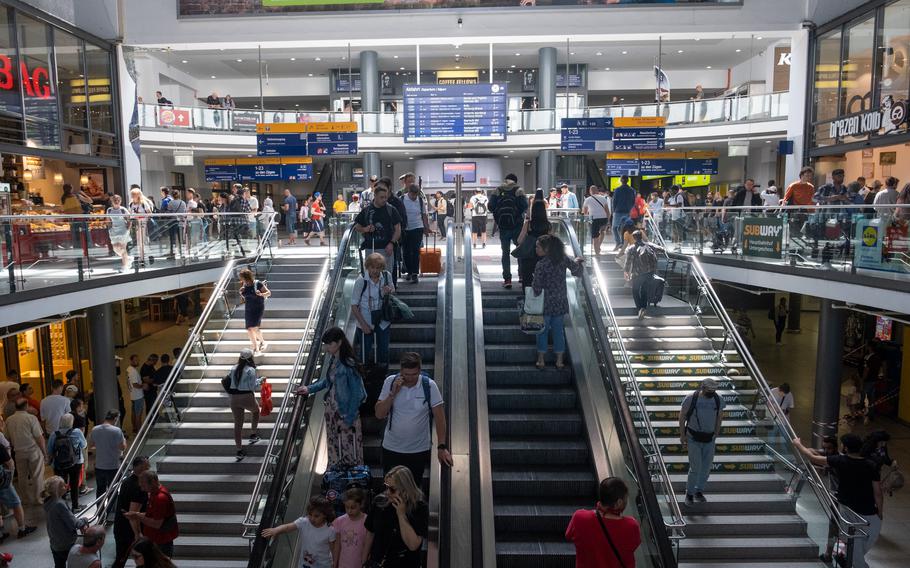
German police watch travelers in the terminal of Nuremberg's main train station May 29, 2023. The city has increased police patrols on weekends to counter high levels of crime at the station. (Michael Slavin/Stars and Stripes)
U.S. military police stationed at Bavarian bases have stepped up weekend patrols at Nuremburg’s main train station, one of Germany’s most crime-plagued transportation hubs, under a recently announced cooperation agreement with the city.
Brig. Gen. Joseph Hilbert, who is responsible for the 50,000 Army personnel and dependents residing in Bavaria, authorized the patrols earlier this year in furtherance of existing joint security arrangements, Nuremberg officials said May 19.
A federal inquiry in March revealed that Nuremberg ranked third among German train stations in the number of violent offenses, sexual crimes and property thefts in 2022.
Police logged 2,250 crimes committed on or near station grounds last year, including 548 violent crimes, 992 thefts and 40 sexual offenses.

Nuremberg's main train station bustles with travelers May 29, 2023. On weekends, nightclubs in the area around the station fill up, bringing a heightened risk of crime, according to city officials. (Michael Slavin/Stars and Stripes)
Nuremberg’s main train station is not one of the busiest in Germany. In fact, it doesn’t even rank in the top 10 nationwide.
But despite its modest size, it has a bigger crime problem than much larger and busier hubs in Hamburg and Hannover, for example, federal statistics show.
"The figures for 2022 … prompted me to bring everyone together," Mayor Marcus Koenig said in a statement in May. "The top priority is more presence in the main station."
Many young people from the largely rural surrounding region come to Nuremberg seeking a change of pace and city nightlife. A large nightclub in the train station itself adds to the attraction on weekends.
In January, a group of U.S. service members leaving a nightclub near the train station attacked German officers responding to a heated dispute, according to a police statement.

German railway security workers patrol the Nuremberg main train station May 29, 2023. Last year, the station ranked third-highest among German railway hubs in number of violent crimes. (Michael Slavin/Stars and Stripes)
One officer suffered severe bruising that required outpatient hospital treatment. The investigation into the assault remains open, an Army Garrison Bavaria spokesman said June 1.
In 2020, a 22-year-old member of the Vilseck-based 2nd Cavalry Regiment bit an officer in the leg and called the law enforcement personnel at the station Nazis, police said.
But the increase in weekend patrols at the train station “cannot be related to a specific incident,” garrison spokesman Franz Zeilmann said June 1.
He added that joint patrols with German counterparts are a common occurrence.

Travelers make their way through the main train station in Nuremberg, Germany, on May 29, 2023. (Michael Slavin/Stars and Stripes)
German police have also long teamed up with U.S. personnel to patrol high-traffic events such as local festivals and the Munich Octoberfest.
The garrison did not provide details about how many soldiers will patrol at the train station and how long the measures are expected to be in effect.
Along with the weekend military patrols, there are plans to add police, railway security workers and additional cameras, Nuremberg officials said in a statement last month.